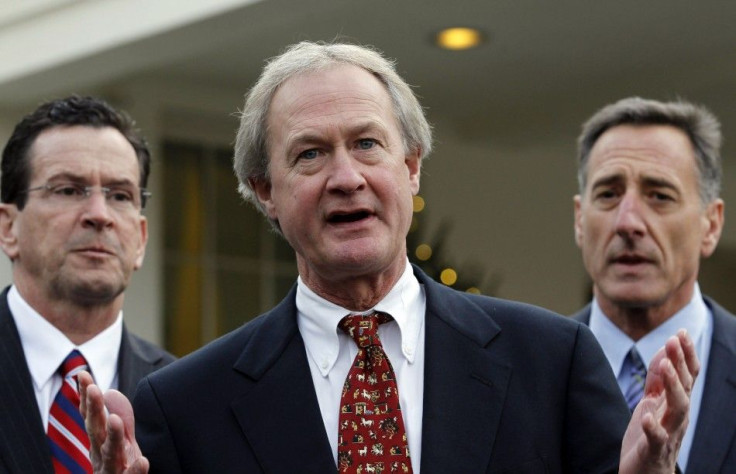Rhode Island Passes Controversial Pension Reforms

The Rhode Island legislature passed a pension overhaul bill late Thursday, angering public workers who called the reforms unfair.
The overhaul raises the retirement age for most state workers and schoolteachers, suspends annual cost-of-living increases for current retirees, and forces public workers to split their retirement funds between a guaranteed pension and a 401(k)-like account whose value depends on the strength of investments.
The controversial bill, which passed 57-15 in the state House and 34-2 in the Senate, is intended to save a pension system whose taxpayer costs would have doubled to $600 million in the next year without changes. Officials had feared that the state's inability to cover the cost of pensions that workers have already earned would result in a credit downgrade.
The people of Rhode Island demanded we fix this problem, and tonight their government delivered, state Treasurer Gina Raimondo, a Democrat, said on Thursday.
Legislators Express Unease
But even legislators who voted for the bill were unhappy.
It may be necessary, but it's certainly not fair, House Deputy Minority Leader John Savage, a Republican, told Reuters.
Gov. Lincoln Chafee, an independent who had urged the legislature to pass the bill and is expected to sign it, said the passage was a cause for encouragement, but not cause for celebration.
Many Rhode Islanders will see reduced benefits and will face a retirement different than the one they had planned, Chafee said.
Rhode Island is far from the only state that has had to pass unpopular reforms to stabilize its pension system, but its situation is one of the most dire. The Pew Center on the States found that Rhode Island was one of only two states that, without reforms, could afford to pay less than half of its current pension obligations.
With the reforms approved on Thursday, the state will be able to cover 60 percent of its pension obligations, up from 48 percent.
Public workers' unions, which spent months negotiating with Chafee and Raimondo, expressed disappointment with the vote.
I feel a certain sense of betrayal, Philip Keefe, president of the Service Employees International Union Local 580, told The Wall Street Journal. My members knew there was going to be some kind of pension change. They didn't think their legs were going to get chopped.
With the shift to a hybrid public-401(k) pension system, workers will take on more of the risk of investment losses. When the state guarantees a set pension regardless of how its investments do, the risk falls entirely on the government.
© Copyright IBTimes 2025. All rights reserved.





















